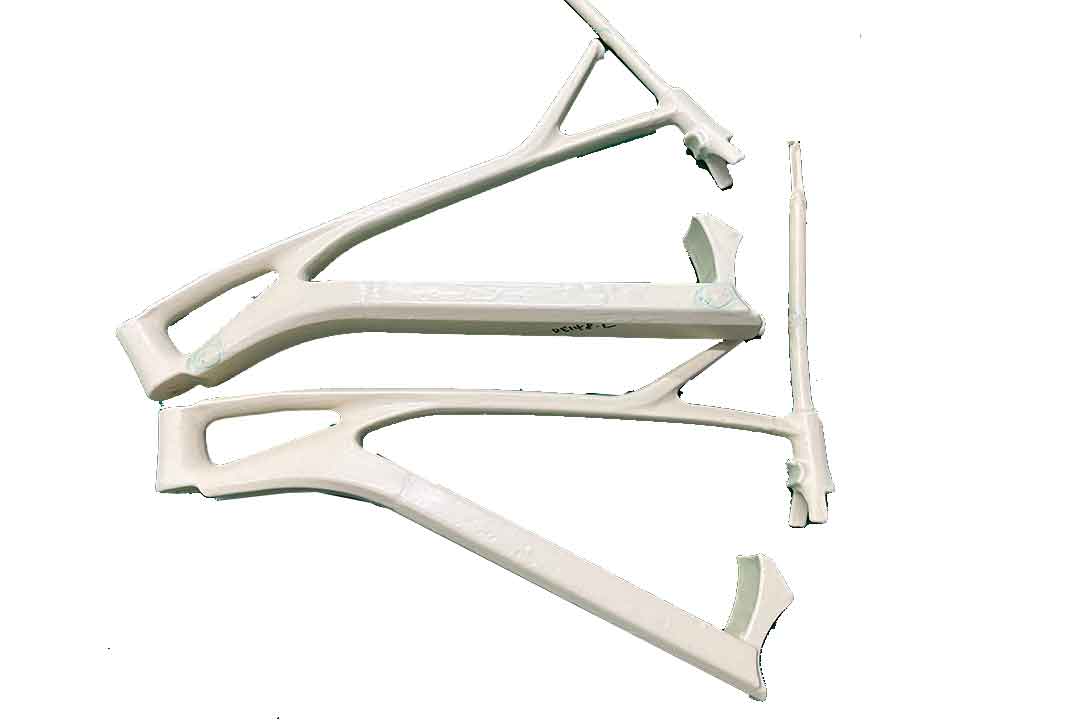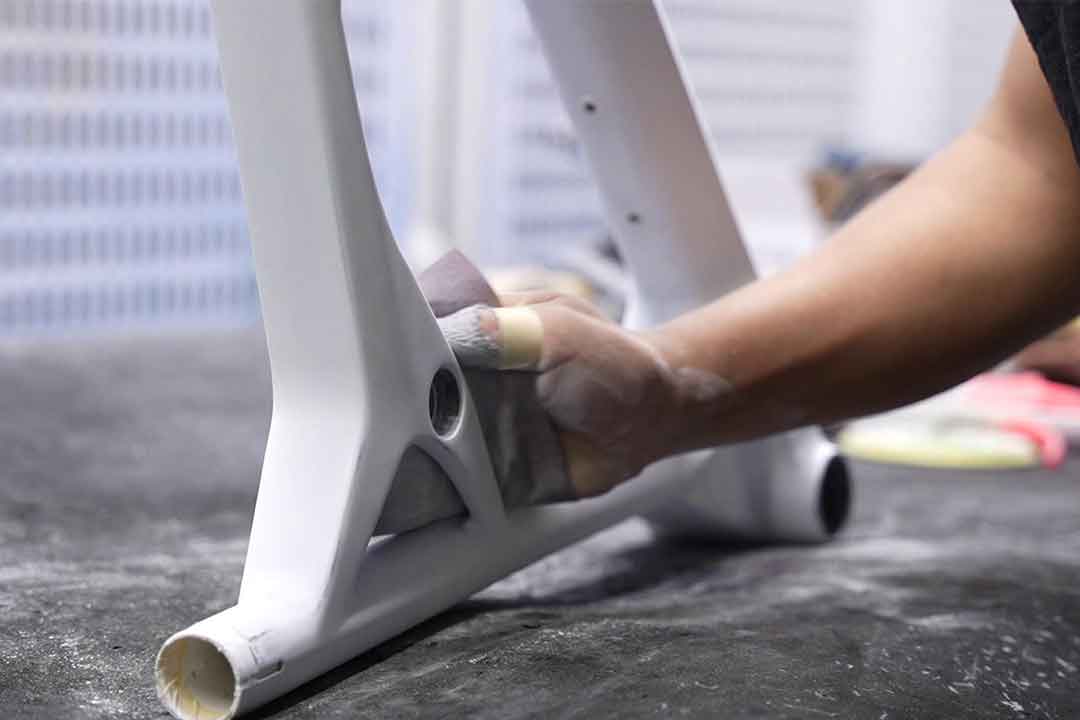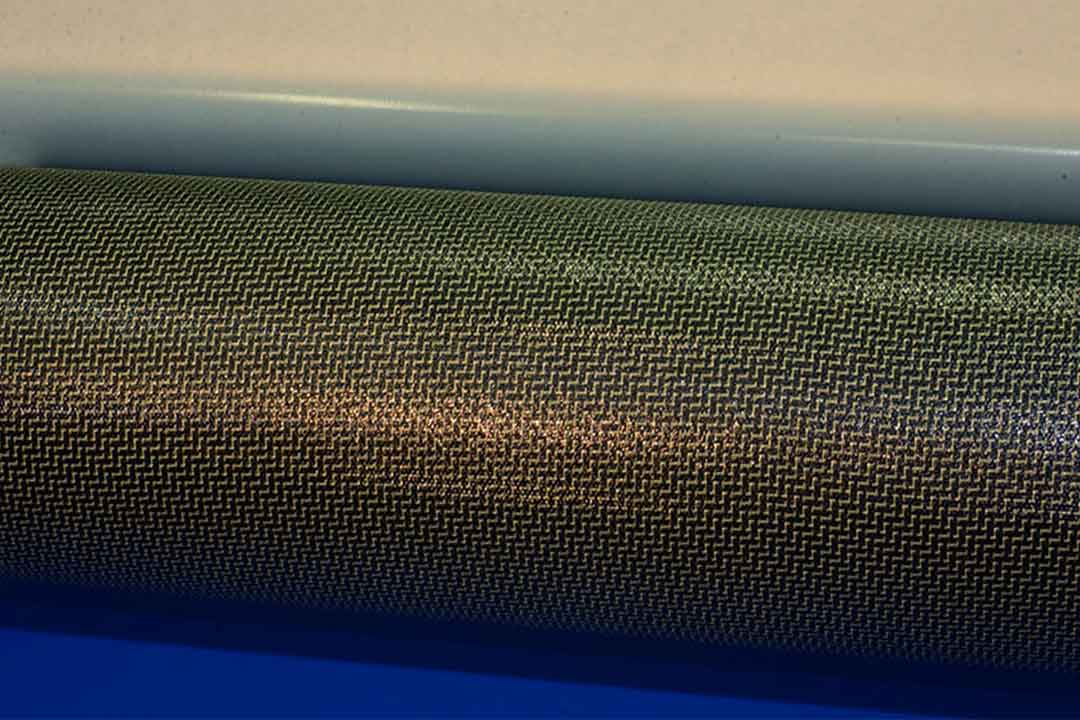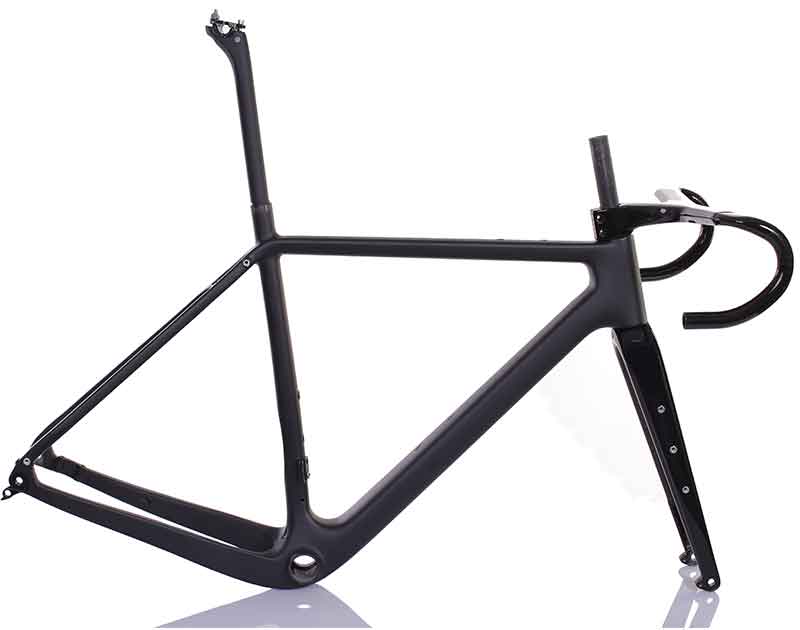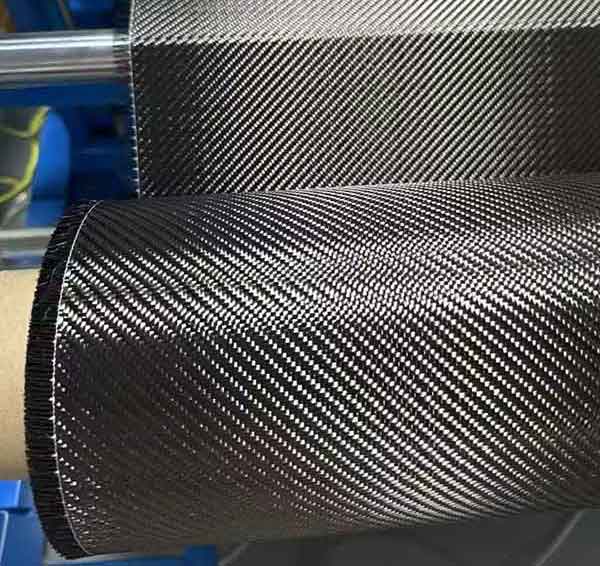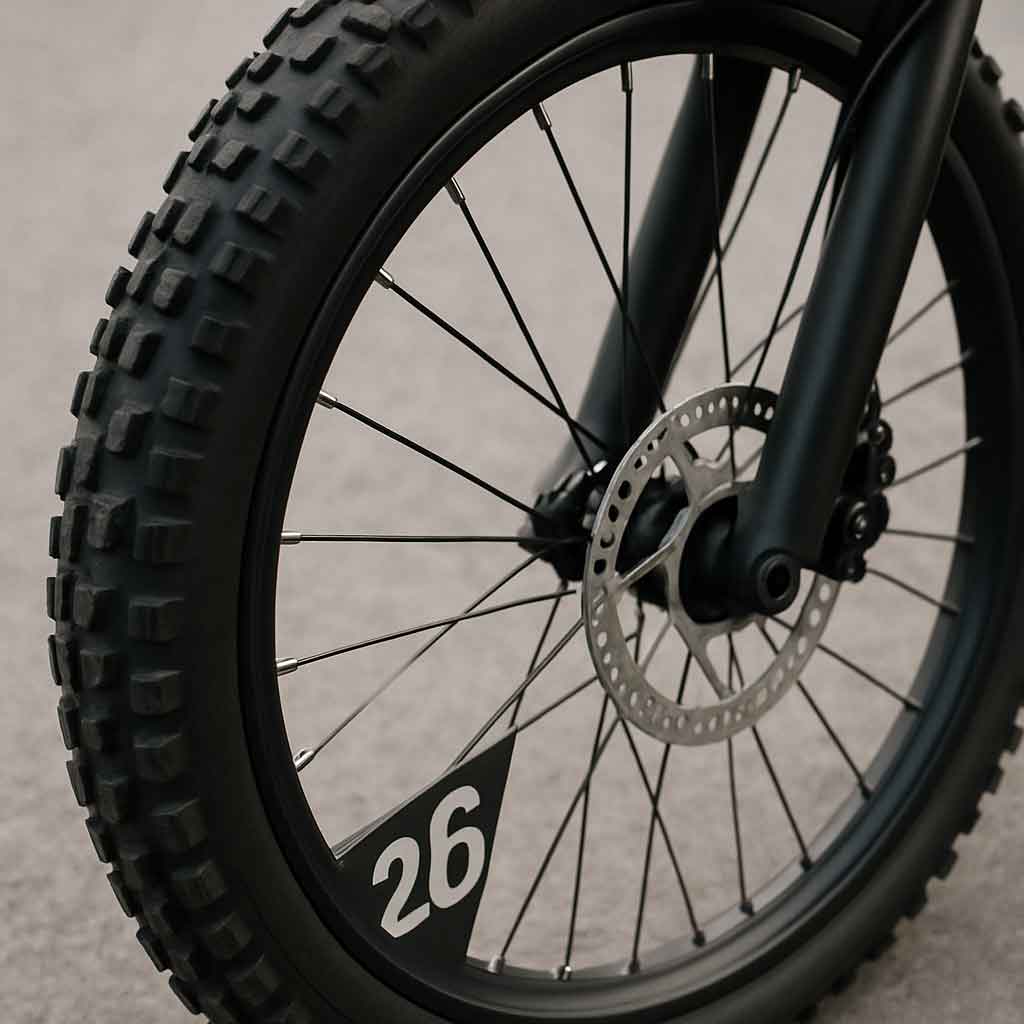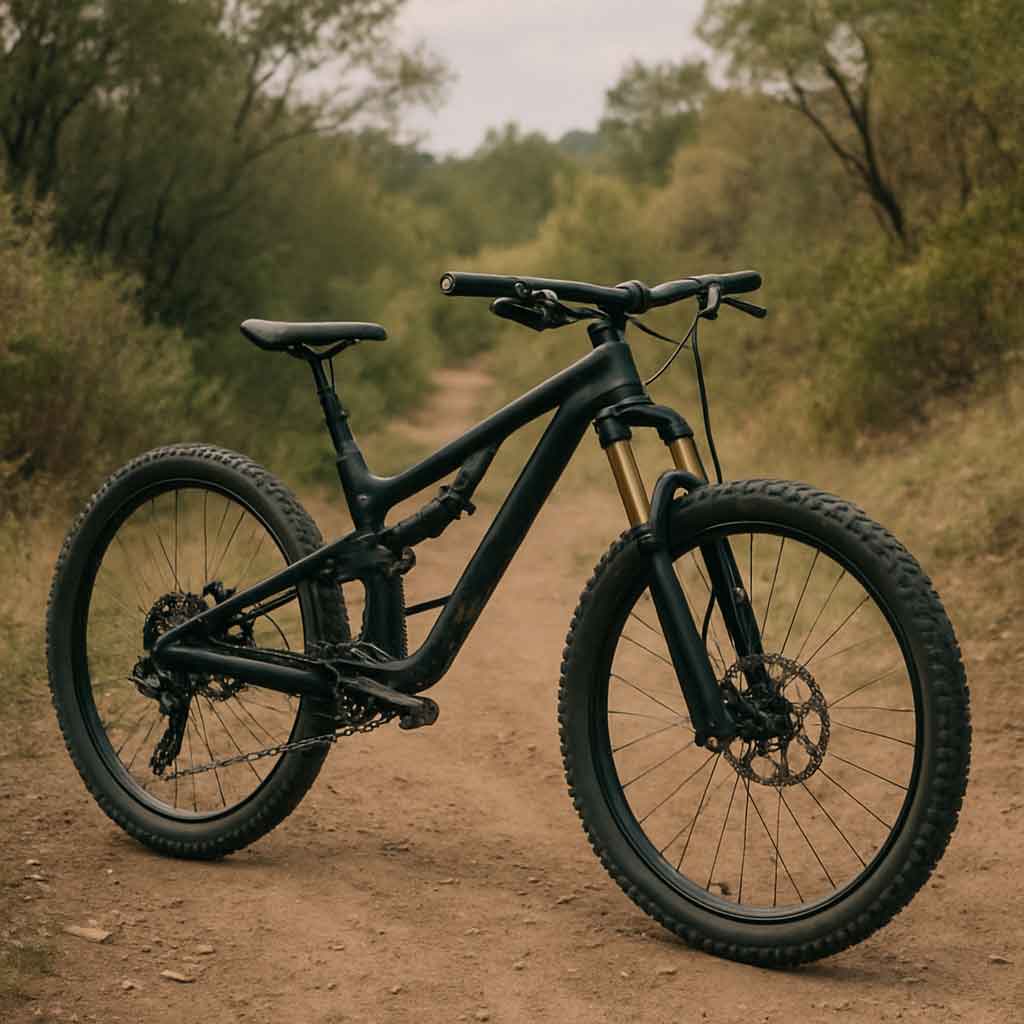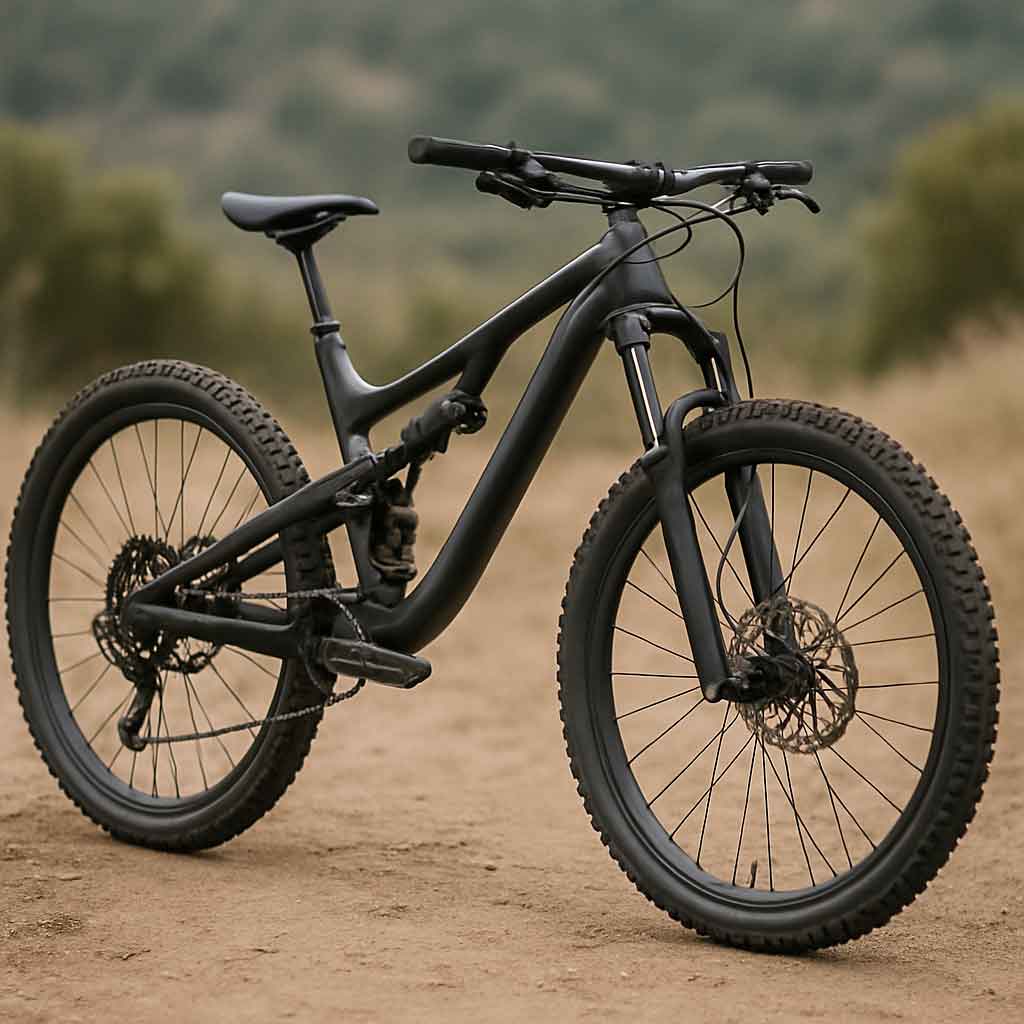Welcome to Mondince Bike - A well-known factory specialized in produce carbon bike frame and other parts since 2007.
Titanium vs. Aluminum: Gravel Bike Comparison
If you're in the market for a new gravel bike, one of the most important decisions you'll face is choosing between titanium and aluminum frames. Both materials have their unique advantages and limitations, and understanding these can help you make an informed decision. In this article, we will compare titanium and aluminum gravel bike frames, focusing on their performance, durability, and overall value.

Gravel bikes are designed for versatility, able to handle rough terrain while providing a comfortable ride. They are ideal for off-road adventures, long-distance rides, and even daily commuting. With a variety of gravel bike frames available, titanium and aluminum are among the most popular choices due to their distinct characteristics.
Design and Purpose
Gravel bikes typically feature a relaxed geometry that prioritizes comfort over speed. This design allows for a more upright riding position, reducing strain on the back and shoulders during long rides. The wider tires and robust frames are built to handle the unpredictable nature of gravel paths, providing stability and traction.
Versatility in Use
One of the key appeals of gravel bikes is their adaptability. Whether you're riding on paved roads, dirt paths, or rocky trails, a gravel bike can handle the transition with ease. This versatility makes them ideal for cyclists who enjoy exploring various terrains without switching bikes.
Key Features
Gravel bikes often come equipped with disc brakes for better stopping power in wet or muddy conditions. They also tend to have multiple mounting points for racks and fenders, making them suitable for bikepacking and extended tours. The combination of these features makes gravel bikes a popular choice for adventure seekers and practical commuters alike.
Titanium Gravel Bike Frames
Durability and Longevity
Titanium is renowned for its durability and resistance to corrosion. A titanium gravel bike frame can withstand harsh weather conditions and rough terrain without showing significant wear and tear. This makes it an excellent long-term investment for avid cyclists who want a bike that will last for years.
Resistance to Environmental Stress
Titanium's natural properties make it highly resistant to the elements. Unlike steel, it does not rust, which is a significant advantage for those who frequently ride in wet or humid climates. This resistance to environmental stress ensures that a titanium frame remains structurally sound and visually appealing over time.
Low Maintenance Needs
The durability of titanium means less frequent maintenance compared to other materials. While regular check-ups are still necessary, the frame itself requires minimal care. This low maintenance aspect is appealing to riders who prefer spending more time on the road than in the workshop.
Investment in Longevity
Despite the higher upfront cost, a titanium frame can prove economical in the long run. Its longevity means fewer replacements and repairs, making it a cost-effective choice for serious cyclists. For those who view their bike as a long-term companion, titanium offers unmatched value.
Comfort and Ride Quality
One of the standout features of titanium frames is their ability to absorb vibrations. This quality provides a smoother ride, reducing fatigue during long rides. The natural flex of titanium frames can make a noticeable difference on rough gravel paths, offering a more comfortable experience for the rider.
Vibration Damping
Titanium's unique ability to dampen vibrations translates to a more comfortable ride, particularly over rough surfaces. This damping effect reduces the fatigue that can accumulate over long distances, allowing riders to maintain their performance and enjoyment.
Flexibility for Comfort
The slight flex in titanium frames contributes to their renowned comfort. This flexibility absorbs shocks from uneven terrain, providing a more forgiving ride. For cyclists who prioritize comfort on long rides, titanium frames offer a significant advantage.
Impact on Rider Fatigue
The reduction in vibrations and the inherent flex of titanium frames help decrease rider fatigue. This is especially beneficial for long-distance cyclists who spend extended periods in the saddle. By minimizing the physical strain, titanium frames enable cyclists to focus on their journey and performance.
Weight Considerations
While titanium is not the lightest material available, it offers a good balance between weight and strength. A titanium gravel bike frame is typically lighter than steel but heavier than high-end carbon fiber frames. However, for many cyclists, the durability and comfort of titanium outweigh the modest weight increase.
Comparison with Other Materials
Compared to steel, titanium is considerably lighter, making it a more appealing choice for those concerned about bike weight. However, it is slightly heavier than carbon fiber, which remains the go-to for those prioritizing extreme lightness. Despite this, the strength-to-weight ratio of titanium remains impressive.
Practical Implications
The weight of a titanium frame is often negligible in practical terms, especially when weighed against its benefits in comfort and durability. Cyclists who ride varied terrain might find the slight weight increase a reasonable trade-off for the enhanced ride quality.
Balance of Strength and Lightness
Titanium's ability to balance strength and lightness is a core reason for its popularity among serious cyclists. This balance ensures that riders can enjoy robust performance without feeling burdened by excessive weight, a crucial factor for long-distance rides.
Cost Implications
Titanium gravel bike frames tend to be more expensive than their aluminum counterparts. The cost is reflective of the material's longevity and performance benefits. For cyclists willing to invest in a high-quality frame that will stand the test of time, titanium is a worthwhile option.
Initial Investment
The upfront cost of a titanium frame can be daunting for some, but it's important to consider the long-term benefits. This investment often leads to savings over time due to the reduced need for replacements and repairs.
Long-Term Value
Cyclists who choose titanium often experience its long-term value, as the frame can last for decades with proper care. This longevity can make the initial expense more palatable when viewed as a lifetime investment in cycling.
Consideration for Serious Cyclists
For committed cyclists, the performance and durability benefits of titanium can justify the cost. Those who view cycling as more than just a hobby will find titanium an excellent choice for its ability to deliver consistent, high-quality performance over time.
Aluminum Gravel Bike Frames
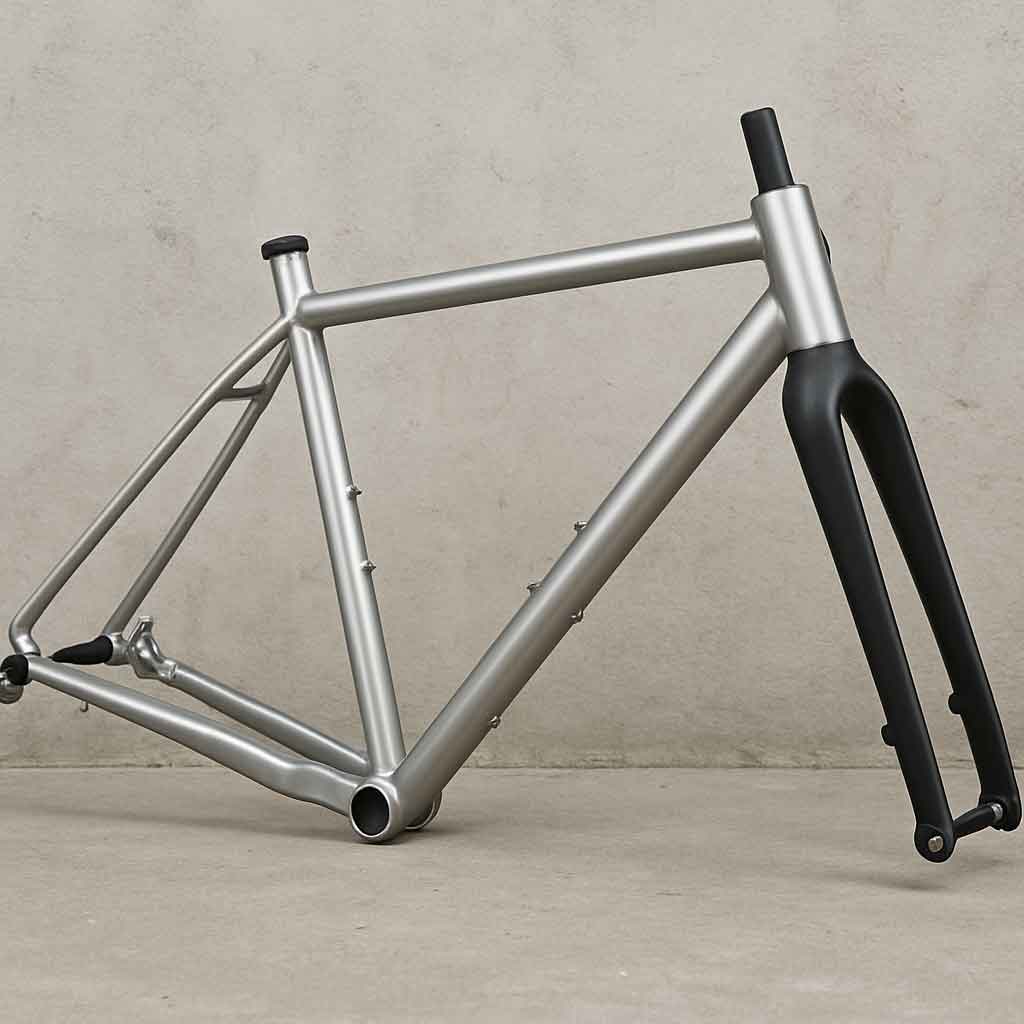
Affordability
Aluminum gravel bike frames are generally more budget-friendly compared to titanium. This makes them an attractive option for beginner cyclists or those looking to get into gravel biking without a significant financial commitment.
Cost-Effective Entry
Aluminum frames provide a cost-effective entry point for those new to gravel biking. The lower price allows beginners to experience the joys of gravel riding without a substantial financial outlay.
Accessible Option for All Levels
The affordability of aluminum makes it accessible to riders of all levels. Whether you're a casual rider or an aspiring competitor, aluminum frames offer a practical choice that doesn't compromise on essential features.
Budget-Friendly Upgrades
For those interested in future upgrades, starting with an aluminum frame allows more budget flexibility. Riders can invest in better components over time while initially benefiting from the cost savings of an aluminum frame.
Weight and Performance
Aluminum is a lightweight material, allowing for nimble handling and quick acceleration. While not as light as carbon fiber, aluminum frames offer a good balance between weight and affordability. For riders who prioritize speed and efficiency, an aluminum frame can be a great choice.
Agile Handling
The lightness of aluminum contributes to agile handling, making it ideal for riders who enjoy quick maneuvers and responsive riding. This agility is a key advantage for those navigating tight trails or urban environments.
Speed and Efficiency
Aluminum's combination of lightness and stiffness aids in maintaining speed and efficiency. Cyclists who prioritize performance will appreciate how aluminum frames enhance their ability to accelerate and maintain momentum.
Balance with Affordability
While not the lightest option available, aluminum strikes a balance between performance and cost. This makes it a popular choice for riders who want a capable bike without the higher price tag of carbon or titanium.
Stiffness and Ride Feel
Aluminum frames are known for their stiffness, which can be both an advantage and a disadvantage. The stiffness contributes to efficient power transfer, allowing riders to maintain speed with less effort. However, this rigidity can also result in a harsher ride, particularly on rough terrains where vibrations are more pronounced.
Efficient Power Transfer
The stiffness of aluminum frames ensures that more energy is transferred from the rider to the bike, enhancing efficiency. This feature is particularly beneficial for competitive cyclists who need every advantage in speed and power.
Ride Comfort Considerations
While the stiffness aids in performance, it can compromise ride comfort on bumpy surfaces. Riders who frequently tackle rough terrain may find the ride harsher compared to more forgiving materials like titanium.
Balancing Stiffness with Comfort
Some manufacturers are addressing the ride comfort issue by incorporating design features that help mitigate the harshness of aluminum frames. Innovations in frame geometry and materials can enhance comfort without sacrificing performance.
Durability and Maintenance
While aluminum frames are resistant to rust, they are more prone to dents and damage compared to titanium. Cyclists who frequently ride on rocky or uneven paths may need to consider this when choosing an aluminum frame. Regular maintenance and care are essential to ensure the longevity of an aluminum gravel bike.
Resistance to Corrosion
Aluminum's natural resistance to rust makes it a low-maintenance option for riders in wet or humid climates. This corrosion resistance contributes to the longevity of the frame when properly maintained.
Vulnerability to Physical Damage
Despite its resistance to rust, aluminum is more susceptible to physical damage like dents. Cyclists who ride in challenging environments should be mindful of this vulnerability and take appropriate precautions.
Importance of Regular Maintenance
To prolong the life of an aluminum frame, regular maintenance is crucial. This includes checking for signs of wear and addressing any damage promptly to prevent further issues.
Performance Comparison
Handling and Versatility
.jpg)
by Artur Voznenko (https://unsplash.com/@voznenko_artur)
When it comes to handling, both titanium and aluminum gravel bikes have their strengths. Titanium's flexibility and vibration absorption provide a smoother and more comfortable ride, especially on long distances. Aluminum, with its rigidity, offers precise handling and quick responsiveness, making it ideal for competitive riders or those who enjoy a more aggressive riding style.
Comparing Riding Experiences
Riders will find that titanium offers a more forgiving ride, thanks to its flexibility. This is particularly beneficial for those who enjoy longer rides and want to minimize fatigue. On the other hand, aluminum's rigid nature provides an immediate and responsive ride, favored by those seeking direct control and quick maneuvers.
Suitability for Different Riding Styles
Titanium bikes are often preferred by endurance riders who value comfort over long distances. Aluminum, by contrast, suits those who prioritize speed and responsiveness, especially in competitive or urban settings. Understanding your riding style can help determine which material aligns best with your preferences.
Balancing Comfort and Control
The choice between titanium and aluminum often comes down to a balance between comfort and control. Cyclists who want a smooth, comfortable ride may lean towards titanium, while those who favor precision and agility might prefer aluminum. Test riding both can provide valuable insight into which material best suits your needs.
Terrain Adaptability
Both materials are suitable for a variety of terrains, but titanium excels in absorbing the shocks from rough and bumpy paths. If you're planning on tackling challenging gravel routes, titanium's ability to cushion impacts could provide a more enjoyable ride. On the other hand, aluminum's lightweight nature is beneficial for climbing and maintaining speed on smoother surfaces.
Performance on Rough Terrain
Titanium's shock-absorbing qualities make it ideal for rough, uneven terrains, providing a smoother and more comfortable ride. This characteristic is advantageous for riders who frequently encounter challenging gravel routes.
Climbing and Speed Efficiency
Aluminum's lightweight nature enhances climbing ability and speed maintenance on smoother terrains. Riders who value quick ascents and efficient speed retention may find aluminum frames more suitable for their needs.
Choosing Based on Terrain Preferences
The type of terrain you most frequently encounter should influence your frame choice. If your routes include a lot of challenging gravel paths, titanium's comfort may be preferable. Conversely, for predominantly smooth paths with occasional climbs, aluminum's efficiency might be more beneficial.
Customization and Aesthetics
Titanium frames often come with a sleek, classic finish that appeals to many cyclists. They are also easier to customize, allowing for personalized designs and finishes. Aluminum frames, while generally more standard in appearance, offer a wide range of color options and are available from numerous manufacturers, providing plenty of choices for riders.
Personalization Options
Titanium frames lend themselves well to customization, allowing riders to add personal touches and modifications. This can include unique designs, finishes, and even custom-built frames tailored to individual specifications.
Aesthetic Considerations
Cyclists often appreciate the timeless, elegant look of titanium frames, which can add a premium feel to their bike. Aluminum, while less customizable, offers vibrant color options and a modern appearance that appeals to many.
Manufacturer Availability
Aluminum frames are widely available from numerous manufacturers, offering a range of styles and price points. This accessibility makes aluminum a practical choice for riders looking for specific features or budget-friendly options.
Making the Right Choice
Choosing between a titanium or aluminum gravel bike frame ultimately depends on your personal preferences, budget, and riding style. If you value durability, comfort, and are willing to invest in a long-lasting bike, titanium might be the best option for you. However, if affordability, lightweight performance, and stiffness are your priorities, an aluminum gravel bike could be the ideal choice.
Evaluating Personal Preferences
When deciding between titanium and aluminum, consider what aspects of riding are most important to you. Are you seeking a bike for endurance and comfort, or do you prioritize speed and agility? Understanding your preferences will help guide your decision.
Budget Considerations
Your budget will also play a significant role in your decision. While titanium offers long-term value, its initial cost is higher. Aluminum provides a more affordable entry point, allowing for potential upgrades over time.
Assessing Riding Needs
Consider how you plan to use your gravel bike. Whether for long-distance adventures or daily commuting, each material offers distinct advantages. Assessing your specific riding needs can help ensure you choose a frame that enhances your cycling experience.
In the end, the best gravel bike is the one that aligns with your cycling goals and enhances your overall riding experience. Happy cycling!



